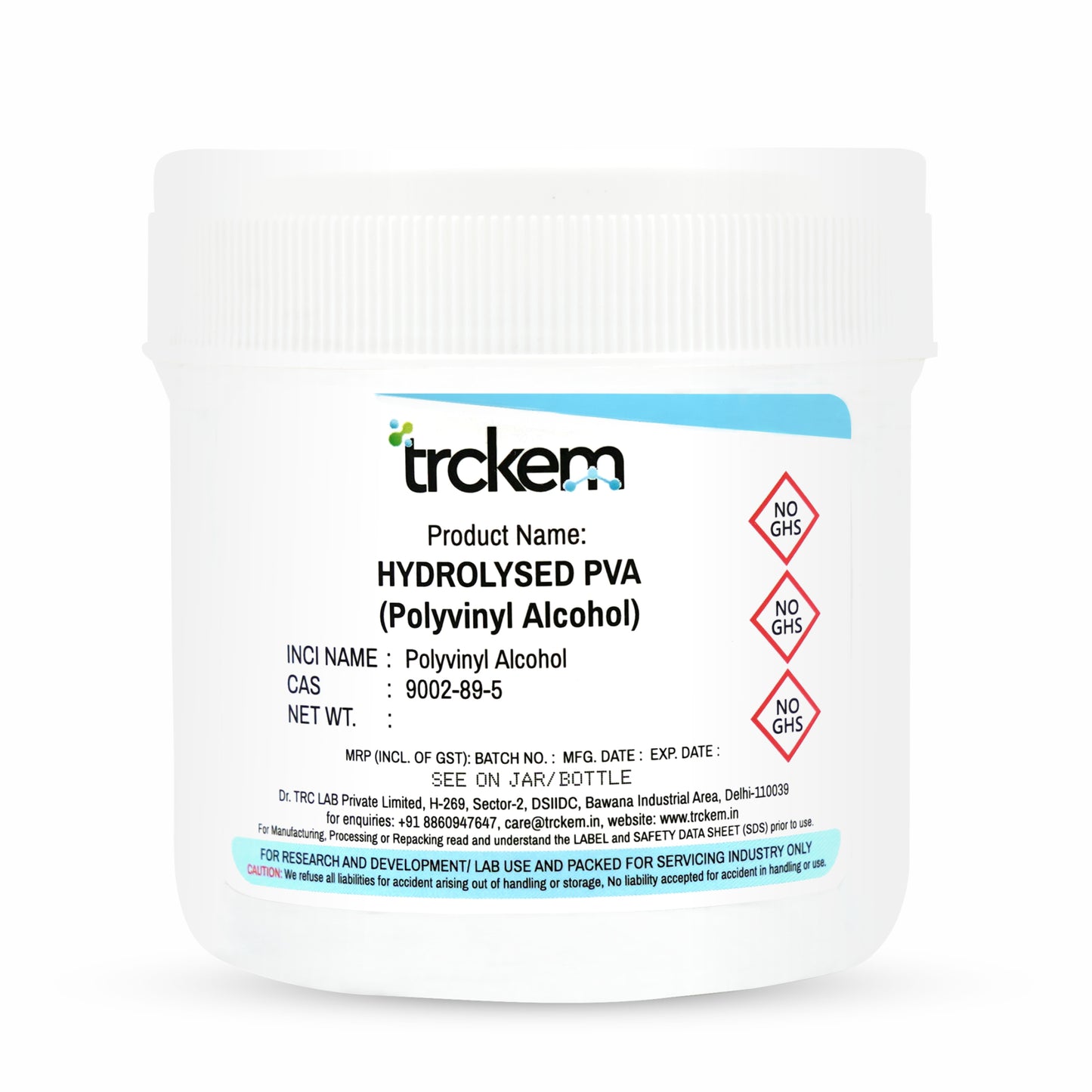
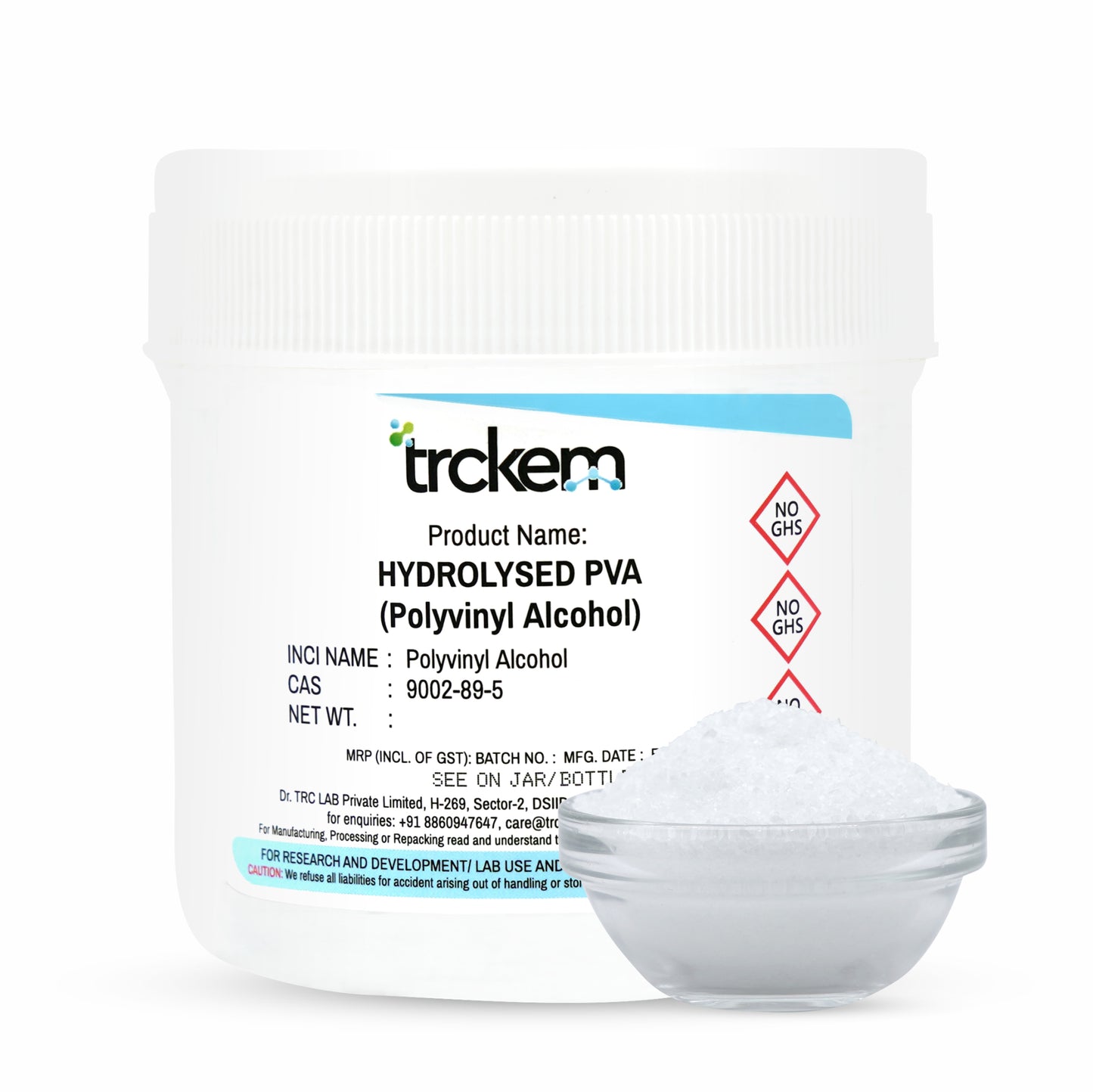
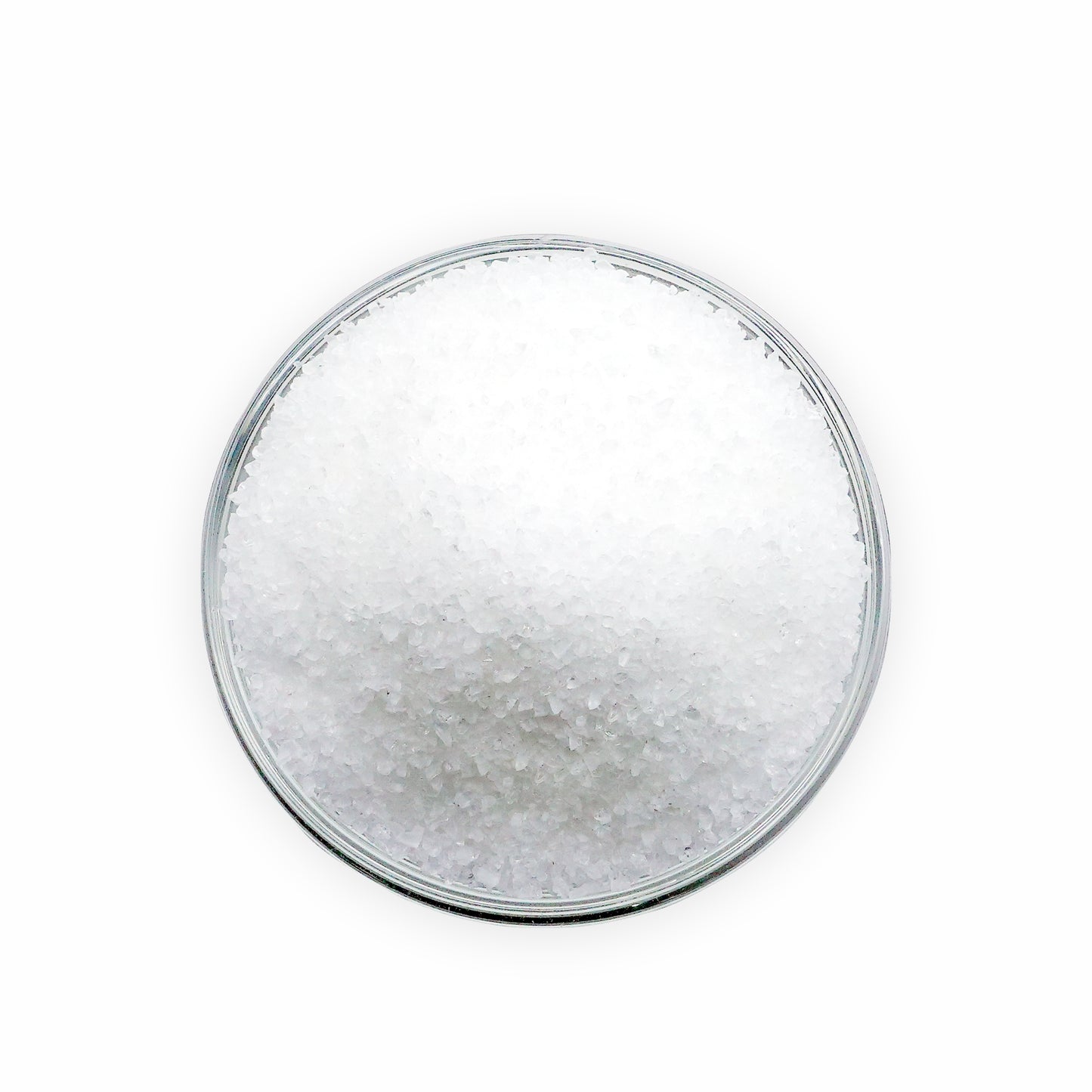
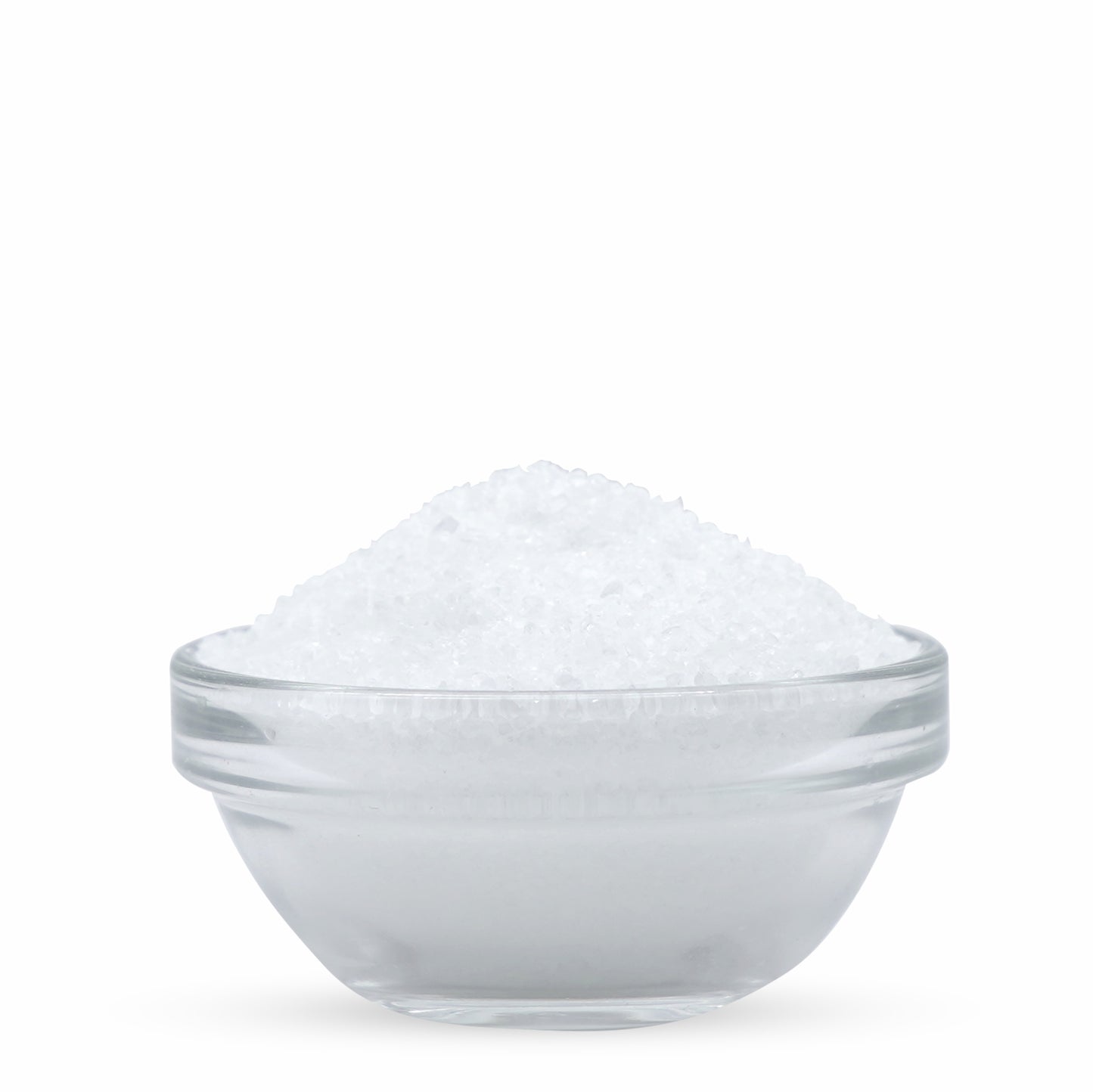
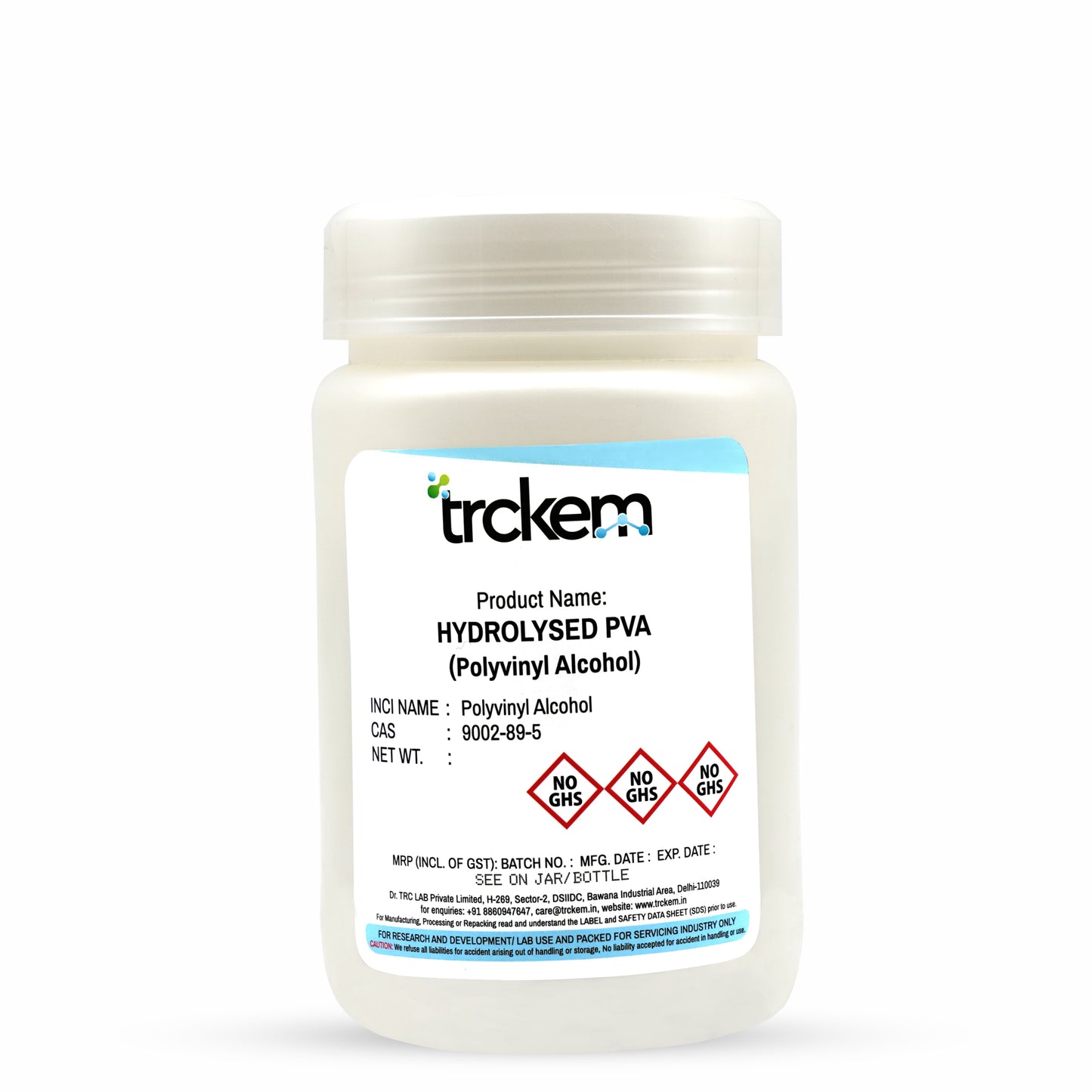
THE STORY OF HYDROLYSED PVA

Hydrolysed PVA: The Film-Forming Polymer for Smooth, Flexible Cosmetic Applications
Hydrolysed PVA (Hydrolysed Polyvinyl Alcohol) is a water-soluble film-forming polymer widely used in skincare, haircare, styling products, and peel-off masks.
It creates smooth, flexible, adhesive-resistant films that enhance texture, performance, and product stability.
Commonly found in peel-off masks, make-up, hair styling gels, serums, and sheet mask essences, it improves product feel and effectiveness.

Derived from Polyvinyl Acetate & Hydrolyzed for Cosmetic Functionality
Hydrolysed PVA is produced by hydrolyzing polyvinyl acetate, converting acetate groups into hydroxyl groups for better solubility and film formation.
Its unique features include:
• Excellent water solubility
• Strong film-forming ability
• Smooth, flexible coatings
• High clarity & purity
TRCkem offers various grades tailored for cosmetics, personal-care & specialized film applications.

Film. Smooth. Support.
Hydrolysed PVA offers multiple high-value benefits:
✅ Creates smooth, even, flexible films
✅ Supports peel-off formulation strength
✅ Improves product viscosity & texture
✅ Enhances wear time in makeup products
✅ Provides binding & adhesion improvement
Used in: peel-off masks, mascara, eyeliners, foundations, primers, hair gels, sheet mask serums, and nail-care formulations.

Stable, Safe & Easy to Formulate Across Water-Based Systems
• Typical use level: 1–15% depending on film thickness
• Add to hot water phase (80–90°C) for proper dispersion
• Fully compatible with most skincare actives
• Stable in pH 5–9
• Non-irritating & safe for topical cosmetic usage
• Store in cool, dry conditions to prevent moisture absorption
• Excellent performance in water-based cosmetic systems
Formulator’s Queries, We Answered
1. What is Hydrolyzed Polyvinyl Alcohol (PVA)?
Hydrolyzed Polyvinyl Alcohol (PVA) is a synthetic polymer derived from the hydrolysis of polyvinyl acetate. It is water-soluble and known for its film-forming, emulsifying, and adhesive properties, making it valuable in personal care and cosmetic formulations.
2. What is the INCI Name of Hydrolyzed Polyvinyl Alcohol?
The INCI (International Nomenclature of Cosmetic Ingredients) name for Hydrolyzed Polyvinyl Alcohol is Polyvinyl Alcohol.
3. What is the CAS Number of Hydrolyzed Polyvinyl Alcohol?
The CAS (Chemical Abstracts Service) number for Polyvinyl Alcohol is 9002-89-5.
4. What are the key benefits of using Hydrolyzed Polyvinyl Alcohol in personal care products?
Film-Forming Agent: Creates a protective barrier on the skin or hair, enhancing product performance.
Thickening Agent: Improves the viscosity and texture of formulations.
Emulsifier: Stabilizes emulsions, ensuring consistent product quality.
Adhesive Properties: Provides binding capabilities, useful in products like peel-off masks.
Moisture Retention: Helps maintain hydration in skin and hair care products.
5. In which personal care products is Hydrolyzed Polyvinyl Alcohol commonly used?
Hydrolyzed PVA is utilized in various formulations, including:
Facial Masks: Especially in peel-off masks for its film-forming properties.
Hair Care Products: Such as shampoos and conditioners to improve texture and manageability.
Skin Care Products: Including lotions and creams for enhanced moisture retention.
Makeup: In products like foundations and mascaras to improve application and wear.
Sunscreens: To stabilize the formulation and enhance water resistance.
6. Is Hydrolyzed Polyvinyl Alcohol safe for cosmetic use?
Yes, Hydrolyzed PVA is considered safe for use in cosmetics and personal care products. It is non-toxic and generally well-tolerated by the skin.
7. Is Hydrolyzed Polyvinyl Alcohol suitable for sensitive skin?
Hydrolyzed PVA is generally non-irritating and suitable for most skin types, including sensitive skin. However, as with any ingredient, it's advisable to conduct patch tests when formulating for sensitive skin applications.
8. Is Hydrolyzed Polyvinyl Alcohol biodegradable?
Yes, Polyvinyl Alcohol is biodegradable under appropriate environmental conditions, making it an eco-friendly choice for personal care formulations.
9. Where can I purchase Hydrolyzed Polyvinyl Alcohol for personal care formulations?
Hydrolyzed PVA is available from specialty chemical suppliers, cosmetic ingredient distributors, and bulk manufacturers catering to the personal care industry.
10. What is the recommended usage level of Hydrolyzed Polyvinyl Alcohol in formulations?
The typical usage level of Hydrolyzed PVA ranges from 1% to 5%, depending on the desired effect and formulation requirements.







